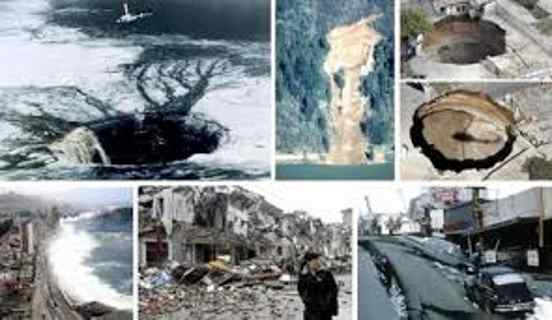4 Ways to Financially Survive a Natural Disaster
Natural disasters can be devastating on many levels. The physical and emotional trauma often affects hundreds, if not thousands, of victims, and can be an overwhelming experience for many. After the dust has settled, communities are left to pick up the pieces. The financial toll of these events can become an enormous burden. To better prepare yourself against catastrophe, consider the following tips on how to financially survive a natural disaster.
Protect the Essentials
Natural disasters can have devastating effects on your home and personal belongings. We have seen the outcome of this many times, such as Hurricane Sandy and the Moore, Okla. tornado in 2013. When you are rebuilding the pieces, you want to make sure you can access all essential documents, including identification and financial information.
This includes passports, birth certificates, social security cards, green cards, car titles, house deeds, loan and bank account information, and copies of current credit cards, health insurance cards, and important phone numbers for accessing these accounts.
The best way to protect these is to keep all original documents – or copies if necessary – stored in a durable, fireproof, watertight container that can be locked and easily located in an emergency situation. If you are evacuating an area, it is imperative that you bring this kit with you. Likewise, if you experience a sudden disaster and are required to hunker down, this kit should be safely stored somewhere it can be accessed if your home is severely damaged. 
Store Gold and Silver
Emergency situations may result in limited or frozen access to bank accounts and monetary funds, leaving you without money for goods and essentials. Keeping a cache of gold and silver on hand is important for quick and easy liquidity in times of need.
These assets are extremely durable, and their intrinsic metal content can survive through even the most extreme disasters, including fires and floods. They are also highly liquid, giving you the freedom to exchange for money or barter for goods at any time.
If you are unsure of what precious metals to have on hand for these types of situations, it is recommended to keep a cache of well-known products that are in smaller denominations for easy liquidation. Pre-1965 US 90% silver coins and one-
Keep Ample Supply of Goods, Tools and Clean Water
Emergency situations naturally create a shortage of goods and clean water. Even the mere threat of a natural disaster can clear out grocery store shelves in a matter of hours. According to the basic laws of economics, a shortage of goods with increased demand can send prices sky high.
We saw this happen following Hurricane Sandy in 2013 when reports of price gouging uncovered severe spikes in price for essential goods, such as bottled water, bread, gasoline, generators, basic food items, matches, and batteries.
You want to make sure you are prepared with ample supply of canned foods, bottled water, flashlights, batteries and, if possible, it is prudent to invest in a reliable source of heat if you reside in colder areas.
Always Stay One Step Ahead
Natural disasters can strike at any time. One of the best ways to protect yourself, your home and your belongings against financial trouble is to think one step ahead. Prepare yourself before something happens, and insure the things that are valuable and important to you, including your health. This is one way to rest assured you won’t fall into severe debt following a catastrophic event.
If you do experience an unexpected natural disaster, there is a chance you may become sick or injured. Medical bills can rack up fast, sending you into debt faster than you may realize. Health insurance can curb many of the costs associated with emergency healthcare. It is also a good idea to consider additional forms of insurance, such as renters, flood and crime insurance. They are typically inexpensive policies, and may significantly help you financially.
For homeowners, it is important to maintain the structure of your home and keep up on repairs. Leaky roof? Don’t delay in fixing it. A natural disaster in your area could turn one small roof leak into a massive problem resulting in thousands of dollars worth of damage. Furthermore, get the appropriate insurance necessary for your living situation. It’s better to be safe than sorry.
Dave Cooper is the president and founder of Upstate Coin & Gold. As the son of wholesale bullion dealer, Andy Cooper of Upstate Coins & Collectibles, Dave has a lifetime of experience in coins, precious metals, and the commodities markets. Dave is an experienced precious metals trader with a wealth of inside knowledge about the wholesale markets and coin industry.
Other useful resources:
Survival MD (Best Post Collapse First Aid Survival Guide Ever)
Backyard Innovator (A Self Sustaining Source Of Fresh Meat,Vegetables And Clean Drinking Water)
Blackout USA (EMP survival and preparedness)
Conquering the coming collapse (Financial advice and preparedness )
Liberty Generator (Build and make your own energy source)
Backyard Liberty (Easy and cheap DIY Aquaponic system to grow your organic and living food bank)
Bullet Proof Home (A Prepper’s Guide in Safeguarding a Home )
Family Self Defense (Best Self Defense Strategies For You And Your Family)
Sold Out After Crisis (Best 37 Items To Hoard For A Long Term Crisis)
SOURCE : modernsurvivalonline.com


